Archive for category National Politics
Sulla vs. Marius
Posted by Joshua Sharf in 2016 Presidential Race, National Politics on May 11th, 2016


Or Trump vs. Clinton, take your pick.
Several decades before the Senate got stabby with Caesar, there were Sulla and Marius. Sulla is pictured on the left, and that’s Marius there on the right, looking like Lyndon Johnson.
I don’t have enough time to go into all the details here. For those, you should go to Dan Carlin’s Hardcore History series on the Death Throes of the Roman Republic. The title of that should give you some clue of where we’re headed with this post.
For our purposes, it’s enough to know this highly simplified version. Gaius Marius was a populist general, hyper-ambitious, who managed to get himself elected Consul seven times, at a time when Consul was a strictly term-limited position: once in your lifetime, and that was it. He posed as a champion of the people, while reworking the Roman command structure so that his legions were personally loyal to him, as opposed to the Senate as an institution. In doing all of this, he severely upended Roman political institutions, which were having trouble enough functioning as it was, and mostly in the service of his own ambitions.
Sulla, among others, was displeased with this. If Gaius was a corrupt, self-serving general, Sulla truly saw himself as a Roman patriot, but a particularly ruthless and brutal one.
In his effort to restore the traditional order, and traditional Roman virtues, reduce the powers of the Consul, restore the primacy of the Senate, and return politics to “normal” functioning, he engaged in a series of political and military battles with Marius, eventually ousting him. Upon arriving in Rome, he addressed the Senate in the Forum, speaking over the screams of those his men were beheading just yards away. In the need to sweep away the entrenched powers, he cleansed Roman politics in blood, so much so that when he eventually retired from public life, he was able to walk about Rome without a bodyguard, having killed everyone who could possible pose a threat.
I have been saying for several months now that the prospect of a Trump vs. Clinton matchup – which I frankly never thought would happen – would let me know exactly how a citizen of Rome, circa 80 BCE, would have felt, having to choose between Marius and Sulla.
The analogs aren’t perfect, but if forced to map one contest onto the other, I think I’d make Trump Sulla and Clinton Marius. Clinton has Marius’s ambition and corruption. Trump has Sulla’s brutality (though not his courage) and his appeal is largely nostalgic. Marius had a party; while Sulla had followers, he was mostly a one-off.
None of this bodes well for us, but it should provide a particular object lesson for those conservatives and Republicans who, in their earnest and right-minded desire to have nothing to do with Trump, are in the process of convincing themselves that Clinton would be bad, but not all that bad.
Let’s be perfectly clear – a Clinton presidency would be a catastrophe for freedom and liberty, for actual traditional American values.
Clinton is not only personally corrupt and mendacious, she has managed to harness the institutions of government to her personal ambition. She has never drawn, in her mind, a clear line between herself, her campaigns, and the public offices she has held. It was the Clintons who put a price tag on the Lincoln Bedroom, and continued to run a likely illegal foundation while she was a Senator and Secretary of State, using the State Department to arrange thank yous to foreign governments who had contributed to the foundation. In her zeal to conceal these activities from public scrutiny, she set up a home-brew email server so she could conveniently delete tens of thousands of emails, depriving investigators of the starting end of the thread when they tried to recover them. In doing so, she put the nation’s most sensitive secrets into the hands of hostile foreign governments, likely getting overseas operatives killed.
This is not merely power for the sake of wealth, it’s wealth for the sake of more power. Clinton is not, a some conservatives are telling themselves, a stable centrist. She is a leftist ideologue leading an increasingly ideologically leftist party. What would be her predecessor in office, the current president, has managed to weaponize the IRS and the Department of Justice against political opponents. Clinton would revise and extend that abuse to any agency with police powers or powers of enforcement.
She would be relentless in her pursuit of a functional one-party state. And she might well be able to achieve it.
Over the last several decades, as political power has shifted away from the states towards DC, and away from Congress towards the Presidency. Democrats have been increasing their base in the Electoral College at the same time. Which explains why, even as Republicans have been cleaning up at the state and local levels, and have been ascendant in Congress, those victories have seemed increasingly hollow.
And she would leave no respite at the state or local levels. The are currently test-piloting the use of state Attorneys General in California, New York, and the Virgin Islands to criminalize political opposition. Likewise, the flim-flam prosecution of Texas Gov. Rick Perry and the John Doe investigation in Wisconsin were designed to hamper leading Republican presidential candidacies at the local level.
Her Supreme Court picks, who see the Court not as a third branch of government but an enforcement mechanism for the Left, would do nothing to stop it.
In politics, it is organization above all that matters. Those trying to organize opposition into cohesive, coherent, cross-state operations capable of resisting federal overreach or effectively winning electoral or legislative battles would find themselves on the receiving end of audits, OSHA visits, and Justice Department investigations.
Fortunes would be confiscated and distributed to leftist, Democrat-supporting political organizations. Donor lists would be demanded and conveniently leaked. This, too, has already been test-piloted by the current administration.
Hillary Clinton would use all of these tactics and more to pursue her political and ideological opponents to the ends of the earth. After four or eight years of her, following eight years of Obama, that would mean an entire generation had grown up thinking this was how things were done.
In all of this, not one senior member of her party has objected. Indeed, they have either denied that any such abuses took place, or denied that openly political prosecutions are abuses at all.
Make no mistake, Trump is a danger all his own. He is more chaotic, less predictable, than Clinton. If Clinton thinks the laws don’t apply to her, Trump sometimes seems to think no rules apply to him at all. He might very well use all the same tools against his political opponents that Hillary would. I strongly suspect that those who think they can control him once in office are in for a rude surprise. His only saving graces appear to be that his patriotism can’t be in doubt, and that the Republican party is just a vehicle for him, rather than an ideological stronghold.
In Sulla’s immediate aftermath, all seemed to be returned to normal. Of course, it wasn’t. As Carlin points out, in using his army to forcibly restore a political order that Romans had lost the will to maintain, he didn’t really put things aright; he just provided a road map for the next strongman who wanted to seize power. (Ironically, against his better judgment, he spared one of Marius’s party – one Julius Caesar. “You fear Marius. I tell you this one contains a thousand Mariuses.” But he spared him anyway.)
Our salvation, if it comes, will not come from anyone we elect President. Even a Ted Cruz, who despite his deep personality flaws, is plainly in love with the Constitution and confined his considerable ambition squarely within its constraints, even a Ted Cruz wouldn’t be able to restore Americans’ faith in a representative system of limited government all by himself. Just as the Romans remained stuck with a fragile system that begged for a strong executive, our own Congress seems uninterested in governing, more interested in running against an executive it won’t rein in.
The choice, therefore, is simply this – which candidate provides the best chance for liberty and freedom, representative government, limited government, to survive as living political movements and ideas in 2020 or 2024? I am, as well, perfectly willing to entertain as a strategy helping to elect one of them, and immediately setting about to undermine him or her, in order to give American more wriggle-room.
I’ll be damned if I know yet, but let’s not fool ourselves about what’s at stake.
What If There’s an Open Convention?
Posted by Joshua Sharf in 2016 Presidential Race on March 3rd, 2016
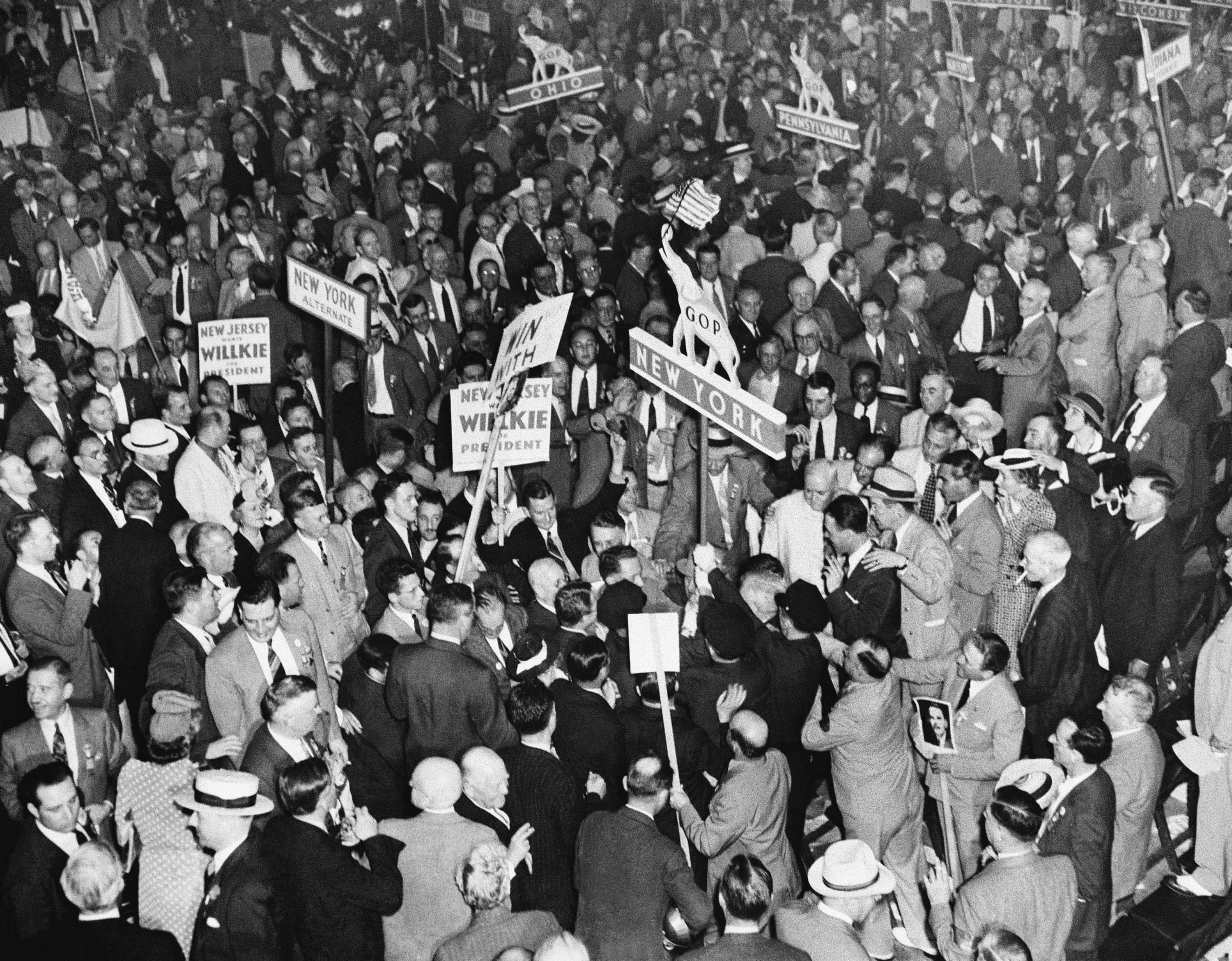 With the inconclusive results from Super Tuesday, and the possibility that Marco Rubio captures a significant number of delegates on the Second Super Tuesday, March 15, there is increasing talk of a convention where none of the three major candidates arrives in Cleveland with enough delegates to secure the nomination.
With the inconclusive results from Super Tuesday, and the possibility that Marco Rubio captures a significant number of delegates on the Second Super Tuesday, March 15, there is increasing talk of a convention where none of the three major candidates arrives in Cleveland with enough delegates to secure the nomination.
In the past, this was known as a “brokered convention,” but with the demise of anything representing a serious party power structure, there are no brokers, and the term “open convention” has taken hold.
Such a scenario has become Marco Rubio’s best shot at the nomination, assuming that he does well in the upcoming states, and is still viable as a candidate.
Reports that Rubio is now pursuing this as his primary strategy have prompted faux outrage from some quarters, decrying the “arrogance” of such a strategy that would “steal” the nomination from Trump.
Rubio has successfully head-faked us twice before, and that should be taken into account when appraising the value of these reports. But for the sake of discussion, let’s assume they’re true.
In my opinion, this is a common-sense strategy for someone who wants to win, and who believes that he can force an open convention. Prior to the modern era, open conventions were the norm, because primaries and caucuses with reported results were so few and far-between. Neither NY Gov. Thomas Dewey in 1948, nor Gen. Dwight Eisenhower in 1952 was nominated on the first ballot. Wendell Willkie was nominated on the 6th ballot in 1940. I’m sure there’s a history of the 10-ballot 1920 nominating convention either written, or waiting to be written.
The last time this happened in a Republican convention was 1976, when Reagan narrowly failed to unhorse incumbent President Gerald Ford.
Less remembered was the 1980 Democratic race, where President Carter had enough delegates to secure renomination, but Senator Ted Kennedy hoped that an increasing loss of confidence in Carter would be enough to pass a floor motion to unbind the delegates. The procedural vote failed, but that outcome was by no means a foregone conclusion, and I remember watching it live.
I don’t see why this strategy is any more arrogant or cynical than Ted Cruz’s overt appeasement of the Trump campaign, trying to transform the race from the presumed “lanes” into a pre-Trump semifinal. Cruz and his supporters have obviously fed Trump support, hoping to use him as a blocking back. Over time, this has transformed into outright appeasement, an “eat me last” strategy that seeks to make Cruz the only acceptable alternative to a Trumpmonster he assisted. In the process, they have helped Trump to severely damage many of the institutions they had hoped to inherit.
The Trump people, and the Cruz people who want to paint Rubio as exceptionally opportunistic, have taken to talking about the “will of the people,” always a doleful sign, but exceptionally so in a Republican primary.
I don’t believe in “the will of the people.” I believe in decisions, candidates, and nominees. I believe in ballots, and delegates, and delegates who cast ballots in order to make decisions and choose among candidates for nominees. You mark a ballot, and if you do it wrong, it’s not my job to figure out which of the stray marks, notes, arrows, corrections, and erasures indicate what it was you were trying to do. In mathematics, my views may vacillate between constructivism and platonism, but in politics, I am a strict, unyielding formalist.
Likewise, the rule is that you only get the nomination if you get 50% + 1 of the delegates. If you don’t get 50% + 1 of the delegates, then by definition it was not “the will of the people” that you be nominated.
If there’s an open convention, arms will be twisted, deals will be made, principles will be pitched and abandoned, and someone will emerge with a majority on some ballot. If the candidate who walks in with the most, but not enough, doesn’t have a plan to win, then shame on him, but it’s his problem, not mine.
Welcome to the real world.
Haley Endorses Rubio
Posted by Joshua Sharf in 2016 Presidential Race, National Politics on February 17th, 2016
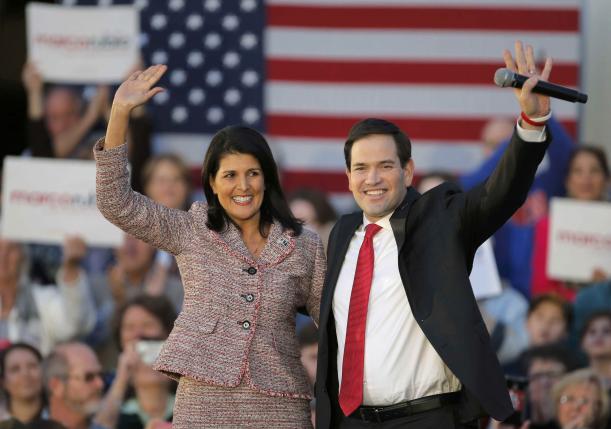 South Carolina Gov. Nikki Haley formally endorsed Sen. Marco Rubio for President this evening at a campaign rally. As has been pointed out, without the political machines they once had at their disposal, elected officials’ endorsements mean less than they used to. Still, this is not insignificant, and comes just a few days before South Carolina holds its primary.
South Carolina Gov. Nikki Haley formally endorsed Sen. Marco Rubio for President this evening at a campaign rally. As has been pointed out, without the political machines they once had at their disposal, elected officials’ endorsements mean less than they used to. Still, this is not insignificant, and comes just a few days before South Carolina holds its primary.
Trump has been leading there and will probably win, but this gives Rubio the inside edge on the alleged “establishment lane” there, and could even push him past Cruz for 2nd place.
The endorsement isn’t entirely unexpected. Haley’s State of the Union response angered many of the Trump and Cruz persuasion, for its emphasis on talking about people rather than policies, and its perceived softness on immigration. Personally, I thought the response was inspiring. The tenor of it was very similar to Rubio’s at his most effective. After she delivered it, I figured that she would be supporting Rubio, if not endorsing him.
[youtube width=”425″ height=”318″]https://www.youtube.com/watch?v=GS5zR7_7M5c[/youtube]
Guy Benson had a Facebook post earlier suggesting that Haley’s endorsement, and that of Sen. Tim Scott, a black Republican from that state, would send an important message to up-and-coming conservatives in the party. I think that’s true, but I think it’s possible that Benson has the cause and effect reversed here.
Haley and Scott were already prominent non-White conservative Republicans. The message of their endorsement for Rubio is not that conservative ideas know no color or sex, that they apply to everyone. That’s the message of Haley and Scott being elected statewide officials in the birthplace of secession, that it’s all right for blacks and other minorities to identify as conservatives and as Republicans.
They could have endorsed anyone, with the exception of Trump, and that wouldn’t have changed.
They obviously have been sold on conservatism’s message and policies, and believe that those are sellable to other minorities and to women. I’m sure that a large factor in their endorsement of Rubio is their belief that of the remaining candidates, he is the most effective communicator of those ideas to those groups.
[youtube width=”425″ height=”318″]https://www.youtube.com/watch?v=MLCgeRN_FAE[/youtube]
Rubio-Cruz, Cruz-Rubio
Posted by Joshua Sharf in 2016 Presidential Race on February 3rd, 2016
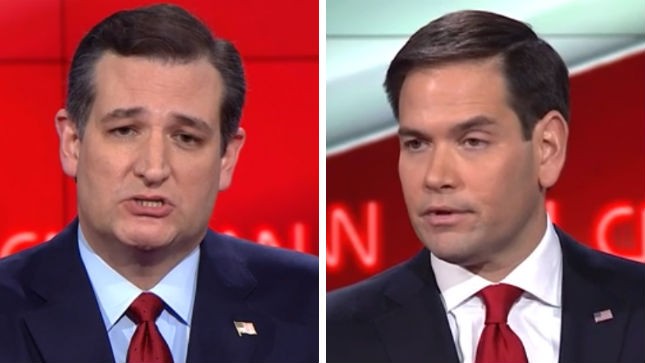 After the Iowa Caucuses, it increasingly appears to be a three-man race, with two serious candidates, Senators Ted Cruz and Marco Rubio. The supporters of each are passionate, sometimes bordering on the maniac, but that’s how it’s ever been in American politics.
After the Iowa Caucuses, it increasingly appears to be a three-man race, with two serious candidates, Senators Ted Cruz and Marco Rubio. The supporters of each are passionate, sometimes bordering on the maniac, but that’s how it’s ever been in American politics.
Sadly, Obama is living up to his promises of fundamental transformation, increasing both the role of the federal government in our day-to-day lives, making it harder for people to rise, making us more dependent on government programs, and hobbling us economically and overseas. He has corrupted everything he has touched, from the IRS to the Justice Department to Defense to the intelligence agencies. He has normalized the idea that it’s all right for the President of the United States to wield the power of the federal government against his political opponents. He will leave the next president with dangerously little room to maneuver – politically fiscally, militarily, and diplomatically – but maneuver he must.
Therefore, I’m less concerned with the antics of their supporters, and more concerned with how each would govern and would affect the long-term prospects for conservatism and the Republican party as its vehicle.
Both Cruz and Rubio present risks in terms of how they would govern, but each presents a different payoff, as well.
Rubio’s benefit is obvious: he’s plenty conservative, and his joyful optimism is better-positioned to bring both the party and the country back to civility, grow the conservative movement among urbanites, minorities, and women, and give us some base for a growing demographic majority rather than a shrinking one. He’s also more likely to hold onto those Congressional majorities, and keep the Democrats at bay at the state level for a while.
That last is more important than it seems. The prospects for a Republican who can win blue states like Minnesota can’t be overstated. As opposed to 1980, or even 1992, far fewer states have been in play at the Presidential level, over the last five elections. Pending the state-level results in 2020, and redistricting, the country risks hardening into relatively evenly-balanced partisan geographic blocks, something we haven’t seen since the mid-1800s.
Worse, while the Republicans have been sweeping everything in their path at the Congressional and state levels, the Democrats have enjoyed an enormous, although not always insurmountable, advantage in the Electoral College. This matters, because at the same time, they’ve been doing everything possible to unbalance our political processes so that winning the presidency is all that matters. A Republican president needs to undo the latter trend, but the results will only have staying power if he can also undo the electoral trend, as well.
The question is how much a President Rubio willing to do with that majority. He’s less likely to upset the apple cart of the established order, fundamentally rethink foreign policy, or take extraordinarily bold action early on. So is the potential reward going to come in time to save the Republic? That’s the risk that we think we’re getting with Rubio – a temperamentally conservative figure who will be more inclined to color inside the lines, turn the ship 15 degrees to starboard when it needs to go full reverse, and who will leave Washington basically unchanged in how it does business.
Cruz’s questions are different. He’s a higher-reward proposition. He’s much more likely to take bold, decisive conservative action, and much more likely to tell the “establishment,” whatever that means now, to pound sand, and thereby reorder how Washington works, if such is possible. David Goldman (Spengler) makes a compelling case that he’s the only one with the intellectual chops to rethink foreign policy in a constructive, strategic way.
However, if he’s higher-reward, he’s also much higher-risk. He will win by winning Romney’s states, plus Virginia, Florida, Ohio and then one other state – Nevada? New Mexico? Iowa? New Hampshire? Which means he won’t be coming in on a landslide of goodwill. Rather he’d win narrowly, and probably divisively. I’ve mentioned before how it’s hard to govern when everyone hates you, and as an additional handicap, he won’t have the press on his side, and he won’t have a particularly large reservoir of goodwill. When things start to go wrong – and things always go wrong – he won’t have very many friends to help him out without exacting a steep price.
Which leads to the internal contradiction of a Cruz Presidency. He’s a man committed to restoring the Constitutional order, which means governing through Congress and rolling back federal power. But he’s also a man who may find it impossible to make any of the domestic changes necessary, since that long-term change requires Congressional legislation. It means that a President Cruz, who longs to restore the Constitutional balance, may be stuck having to rely on the power of the executive, which both betrays that plan, and makes any structural fiscal or regulatory reform short-lived.
That’s the calculus facing Republican voters. It goes without saying that either Rubio or Cruz is a better bet for the country than corrupt Clinton or socialist Sanders. Imagine after eight years of either, after eight years of Obama, with a presidency increasingly comfortable with truly imperial powers. By then, it would be almost impossible to remember a time when the president couldn’t simply do whatever he or she wanted, or worse, when a citizen largely could do whatever he or she wanted.
Chronic Clinton Fatigue Disorder
Posted by Joshua Sharf in 2016 Presidential Race, National Politics on November 15th, 2015
Bernie Sanders is once again tired of hearing about Hillary’s emails.
Hillary Clinton hasn’t even been elected President, and she’s already returned Clinton Fatigue to Washington.
 Clinton Fatigue is that sense of exhaustion you get when trying to sort through the various lies, deceptions, evasions, inventions, and circumventions necessitated by various legal, ethical, and tangles, large and small, engaged in by the Clintons and their friends.
Clinton Fatigue is that sense of exhaustion you get when trying to sort through the various lies, deceptions, evasions, inventions, and circumventions necessitated by various legal, ethical, and tangles, large and small, engaged in by the Clintons and their friends.
Clinton Fatigue was one of the major contributing factors to the election of George W. Bush in 2000. People were exhausted by the sense that when they read the news coming out of Washington, they were forever walking in on a guilty child whose first reaction, like that of all guilty children, was to make something up. They had rejected a second term for George H.W. Bush in the 1992 elections, putting these very same Clintons in charge. Only eight years later, they elected his son of (nearly) the same name, so strong was the nostalgia for a time when the adults were in charge.
And now, with Madame Hillary holding no public office, only a candidate for President, it’s back.
It’s back in the lying about the lying about Benghazi. In the emails that Bernie Sander is already impatient to move on from, and the classified information that was on them. In the form that Hillary signed about the handling of classified info. In the tax returns that the Clinton Foundation can’t seem to get quite right. In the evidence that the Foundation had donors with business before the State Department.
It’s in the Hillary trying to turn herself into a hero of post-9/11 downtown reconstruction (where her daughter was not, in fact, jogging on that infamous day). For the record, because we cling to the hope that the record still matters, was how Hillary was received by the families of the NYPD and FDNY just a few weeks after 9/11:
[youtube]https://www.youtube.com/watch?v=7xa6BZXnGOQ[/youtube]
It’s in the lies she tells because she has to and the lies she tells because she wants to and the lies she tells because she just can’t help herself.
It’s in the “can’t remembers” when she doesn’t like the memory, or the lingering questions that never get answered but always have been.
It isn’t helped by the conspiricists who insist that Vince Foster was shot or that the MENA Airport was a major hub for drugs, murder, and mayhem all overseen by the then-governor but that doesn’t make the fatigue any less real.
The Clintons don’t just bring the Fatigue with them, they’re carriers. This time, it’s Huma Abedin who was personally put on the State Department payroll, signed a separation agreement which included the handling of classified information.
These lies, shadings, convenient memory lapses don’t just appear of their own accord. When someone compiles that kind of a record, it’s because of character.
She is, by turns, personally venal and politically vindictive. Does anyone doubt that she was selling access and potentially contracts the way she and her husband sold the Lincoln Bedroom a decade earlier? Does anyone think that she would shy away from using the IRS to punish political opponents?
She is contemptuous of the people she claimed to represent, and claims to want to lead. That booing in the post-9/11 video above came after her motorcade ran down a New York police officer there to provide security, and Madame Hillary couldn’t be bothered to stop to see if here was all right. Her first response, “Don’t worry, I’m ok.” With respect, we didn’t really doubt you were.
Whatever political skills Bill may have had, it should by now be abundantly clear to anyone who isn’t a hopeless partisan hack that Madame Hillary has, quit literally, none of the personal characteristics necessary for the Oval Office.
Does anyone doubt that a decade and a half of this sort of thing would irreversibly damage and distort our political institutions?
Debating to Win
Posted by Joshua Sharf in 2016 Presidential Race on November 12th, 2015
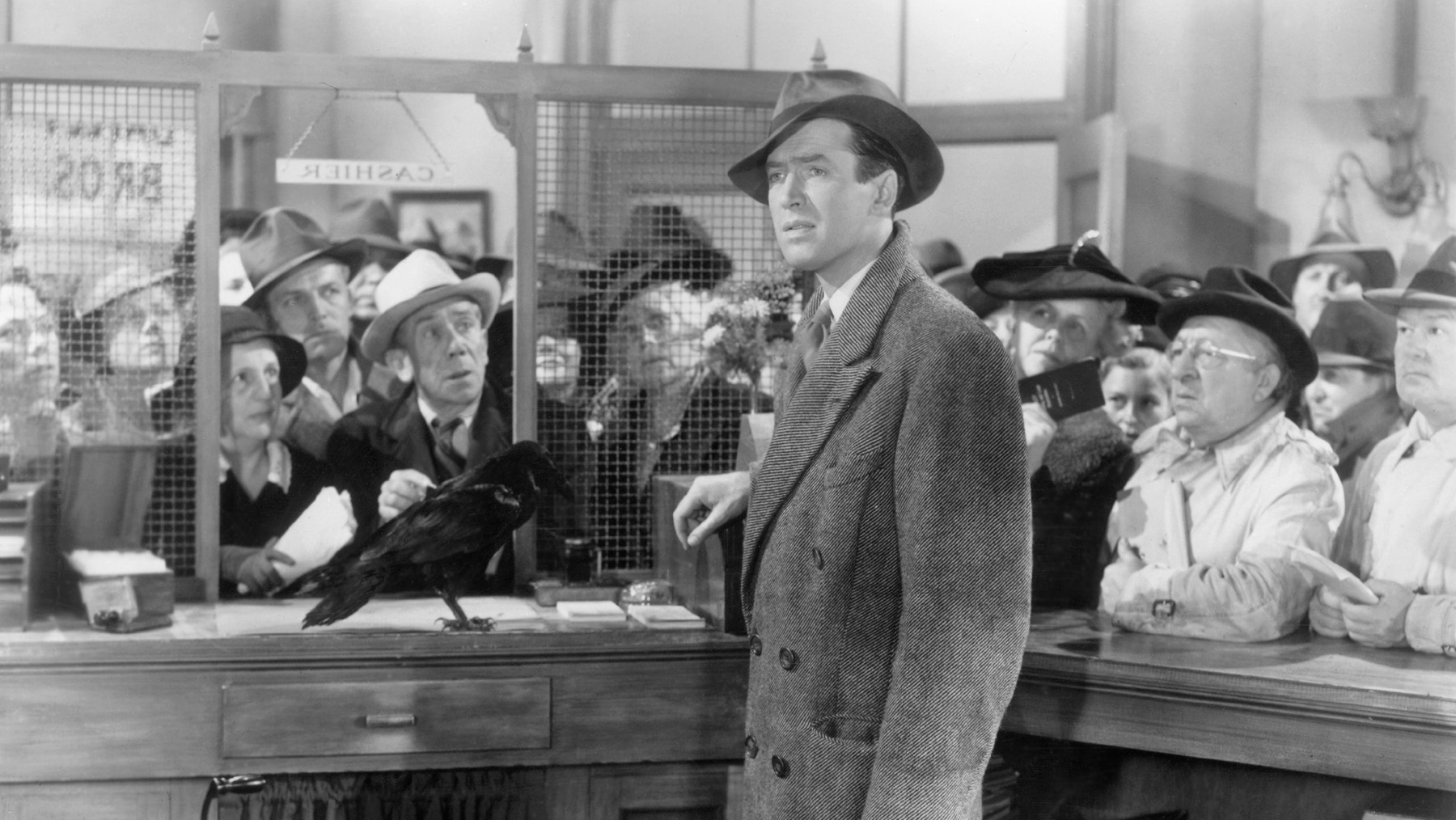 Tuesday night, Neil Cavuto asked the question about the bank bailouts, and whether or not a President Cruz, or Rubio, or Paul, or Bush, or Kasich, would help organize a government rescue of, say, BankAmerica if it were on the verge of going under.
Tuesday night, Neil Cavuto asked the question about the bank bailouts, and whether or not a President Cruz, or Rubio, or Paul, or Bush, or Kasich, would help organize a government rescue of, say, BankAmerica if it were on the verge of going under.
Almost all those who answered the question – with the exception of Bush and Kasich, both of whom worked for banks, and both of whom answered incoherently – all of them said, no, they would let BankAmerican fail. When Cavuto pressed them on the question of people’s savings, they continued to say no, they wouldn’t bail out BankAmerica, they’d let it go under.
And that was it. No elaboration of what that would mean for people, no discussion of the consequences. Just talk of “too big to fail” and how lousy Dodd-Frank is
I cannot begin to describe how awful an answer that is.
Without even talking about the policy, which might or might not make sense (although these same candidates for the most part didn’t want to talk about breaking up the “too big to fail” institutions, or how interconnected all the banks are), the answer as an argument to the people who were watching at home was catastrophically bad.
Cavuto pressed this point several times, and not one of the candidates – not even Ted “Smartest Guy In the Room And I’ll Make Damn Sure Everyone Knows It” Cruz – brought up the fact that we have deposit insurance in the form of the FDIC. Individuals probably don’t have anything to worry about in terms of their own bank accounts, even pretty well-off individuals. But nobody thought to mention this fact.
Look, I realize that the bank bailouts and TARP are, right now, as toxic among Republicans as a tranche of subprime mortgages was in 2008 to an institutional investor. But when people hear “bank failure,” they don’t think, “Wall Street Fat Cats,” they think Jimmy Stewart cancelling his honeymoon to go save the Building & Loan in It’s A Wonderful Life, which people have only seen a thousand times in their own lives. They think bank runs and desperate looks and breadlines and Mary Poppins and life savings’ wiped out and lives ruined.
They think personal devastation.
And yet not one word that any of these Presidential candidates uttered did anything to reassure people that it wouldn’t happen to them.
Now think for a second how a rational, intelligent version of Joe Biden would have answered that. (Yes, I know, imagining such a thing is like imagining a vegetarian lion, but work with me.)
He’d talk about how people count on those banks, and count on they’re being safe in order to feed their families and pay their rent or their kids’ college tuition. He’d talk about how he’d make sure that every last one of those workers were taken care of, how not one of them would lose s dime, but how the bankers who made those mistakes and put those lives at risk would have their toys taken away.
He’d talk about how nobody would get out of paying a penny they owed, and all those loans would go to a healthy bank, one run by people who weren’t greedy, and how all those savings would be made whole. And he’d say that thank God and FDR we have deposit insurance, so the little guy can’t get trampled when the big guys make mistakes. Because he grew up knowing people who had lost everything in the Depression, everything being not much to begin with, and by God he wasn’t going to let that happen again.
This is no small mistake, no “nobody’s perfect” moment. This is basic stuff that wasn’t mentioned at all, and that Cavuto pressed people on, making it sound as though individual savings were at risk. I’m sure he knows better and had a follow-up that would have made it clear, but with nobody biting, he never had a chance to bring that out.
The Democrats are going to demagogue this to death, and there’s no reason for it.
Fortunately, right now, Hillary, Woman of the People, seems to be Wall Street’s favorite candidate, so there should be other opportunities to push this line. Let’s hope they make better use of it.
Hillary Goes BLM
Posted by Joshua Sharf in 2016 Presidential Race, National Politics on November 4th, 2015
Hillary Clinton met with the mothers of Treyvon Martin, Michael Brown, and Tamir Rice Monday. The meeting comes after several other efforts to court the Black Lives Matter (sic) organization.
There are – literally – millions of other mothers Hillary could have met with yesterday.
She could have met with the moms of some of the police officers killed. She could have met with Chris Mintz’s mom, or even Chris Mintz himself, since he’s still miraculously alive. She could have met with the moms of some people killed by thugs on the streets, or people who had their stores robbed, or people who intervened to stop those things.
She could have asked the board of the Clinton Foundation to throw a little money to the people of Ferguson who saw their town used as a staging ground for street violence, and their downtown burned to the foundations.
Instead, she decided to help legitimize that street violence by signalling to the Black Lives Matter crowd that she was on their side. For the record, she was also the very first guest on Al Sharpton’s show in his new Sunday morning time slot.
What’s at work here is the ultimately self-destructive and (one can only hope) self-defeating identity politics of the modern Democratic Party. Barack Obama won re-election largely on the strength of an enormous turnout of black voters.
It’s also true that Hillary realizes that there’s probably no way that she can repeat that kind of performance, and that in order to win, she can’t let it slip all that far. She needs enthusiasm, and if she can’t get that, she’ll settle for energy. In a way, the joyless, angry Black Lives Matter is a great match temperamentally for the joyless, angry Hillary Clinton.
It’s to Barack Obama’s lasting shame (if he, indeed, is capable of such) that he has helped empower these street thugs and allowed others to think that they somehow represent the black community. Madame Hillary may feel that she has no choice but to court them, in order to prevent the sort of disruptions that helped defeat Humphrey in 1968. And if that means being unable to choke out the words, “All lives matter,” which are apparent now exclusive by virtue of their inclusivity, or something like that, well, that’s a small price to pay for the White House.
The problem is, it’s not a small price for the rest of us. Interest groups can afford to be provincial. Presidents should not, and the idea that “all lives matter,” even as a meaningless phrase, shouldn’t be controversial to the President. The President, who will also appoint the Attorney General and help run the Civil Right Division.
After Monday, don’t say you weren’t warned.
American Independents
Posted by Joshua Sharf in 2016 Presidential Race on October 20th, 2015
Word is that former Virginia Senator Jim Webb will be dropping out of the race for the Democratic presidential nomination, and may consider an independent run for the office.
So far, the Sharf Curse remains intact. My first two choices for the Republicans were Rick Perry and Scott Walker, so far the only two Republicans to give up their runs. On the Democratic side, Webb seemed to be the only sane one running. Although he was well to the left of me on economic policy, he seemed well-grounded on social issues, and was the only Democrat who was remotely connected to the real world when it comes to foreign policy.
I wasn’t the only one who noticed that Webb seemed to be on the wrong stage, and wished that the RNC and DNC general managers could get together and arrange a trade for Trump.
Given that, it’s not surprising that many Republicans are reacting favorably to the idea of Webb running as an independent, particularly as the idea grows that Trump might be the nominee. (I myself remain serenely unconcerned about that possibility, for much the same reason that I don’t trouble myself over the prospect of a Sharf Administration.) The reasoning goes that Webb, as a basically reasonable guy, would be able to work with the Republicans on foreign and, to some extent, social policy, and with the Democrats on economic policy.
In some ways, it’s an appealing thought, but it’s not going to happen.
For one thing, Webb can’t possibly get elected. Even in this day of reduced party organizations, they can still mobilize ground support and GOTV efforts like no other. It also doesn’t appear that Webb would have the support of any of the independent organizations (the Koch brothers’ AFP, or the Silicon Valley data-mining enterprises).
Even if he were to win, he would find himself without party support in Congress. This might not matter so much during normal times, and if the take-away for the parties from an independent being elected president were that people were tired of drama, we might get back to normal times.
But I don’t think that’s in the cards, with Nancy Pelosi in the House and Chuck Schumer leading the Democrats in the Senate. There might be a honeymoon of sorts, and it might even last a while. And for things like Supreme Court nominations, one could even argue that without a partisan target, the parties might be more willing to look at the merits of a nominee. Personally, I think they’d be even more focused on outcomes rather than background and temperament.
Moreover, President Webb would have no party base of support to fall back on when things get rough. To do so would be to risk becoming captive to one party or the other in Congress. Either party would extract a steep price for going to the mat for him and expending political capital on his behalf during a difficult fight.
All of which points to an even more ominous development that a Webb presidency would portend – the extension of executive power even beyond its current, bloated form.
Think about it. In foreign policy, the executive has primacy. Webb is more likely to have Republican support for whatever his foreign policy looks like in practice, so they’re not likely to try to clobber him over that the way the Dems did to Reagan over Iran-Contra, or George W. Bush over the Iraq War. Moreover, Republicans, barring outright catastrophic decisions like those we’ve been seeing since 2013, tend to be gunshy about undercutting the executive in this arena.
What they’re likely to have a problem with is Webb’s domestic policies. While those policies are unlikely to resemble Obama’s aggressive, transform-the-country-into-Venezuela-cum-Norway approach, they’d still be his own, not Congress’s.
And the power dynamic hasn’t changed. The executive branch still has broad regulatory authority that acts like legislative power, and Webb would likely, after a year or so of failed cat-wrangling of his own, likely find the temptation to use them to their fullest to be irresistible.
The Senate Democrats are practiced at running interference for liberal executive overreach. The Republicans will be tempted to do to the same for things like changes to the EPA’s range of authority. And Webb would have little incentive to seek legislation that would structually revert power back to Congress from the executive or back to the states from Washington.
So while a Webb Administration might provide some sanity and stability, it could probably only do so by entrenching the means for further lawlessness and chaos down the road.
A Modest Proposal on Murder
Posted by Joshua Sharf in 2016 Presidential Race, National Politics on October 6th, 2015

Today, in response to the UCC shootings, Hillary Clinton resurrected that old chestnut, making gun manufacturers liable for the misuse of their legal product. She would allow the families of murder victims whose killers used a gun to sue the gun manufacturer for damages.
It’s a gun ban by another name, since no manufacturer would be able to afford the liability insurance required to stay in business. And if you think this would end with the manufacture of guns, think again. Gun ranges, gunsmiths, gun retailers (who are federally-licensed) would soon find themselves covered, making the transfer, sale, and repair of firearms effectively illegal.
The proposal is silly on the face of it. Guns can be used for many purposes, almost all of them lawful, safe, and beneficial. Guns are used for self-defense in this country every day. As has been repeatedly mentioned, even as gun ownership has soared, crime rates, including the murder rate by guns, has plummeted.
But as long as we’re at it, let’s understand that while slightly fewer than half murderers use handguns, many use knives or blunt objects such as hammers. If the goal is to reduce actual murder, rather than to simply get guns out of the hands of law-abiding citizens, we should, by logic, allow the families of murder victims whose killers used hammers or steak knives to sue those manufacturers, as well. In 2014, 71 people were murdered by fire. We should then allow those families to sue match manufacturers.
Eighty-nine people were murdered by strangulation. Strangling someone with one’s bare hands is hard; an object is usually used. Clearly, the manufacturers of electrical cord, rope, belts, and other clothing should be liable.
In Israel, Palestinians have recently taken to driving cars into Jews standing at bus stops. Were such a practice to become common here, the auto manufacturers should be held liable, as well.
Obviously, the economy would grind to a halt within minutes of such laws being passed, indeed, long before they actually became law, as retailers and manufacturers scrambled to get out of these suddenly-risky businesses. But in principle, there’s nothing different between holding Ginsu responsible for the murderer who uses its kitchen knife and Glock responsible for the breakdown of social order in Chicago.
Despite having lost the gun control debate, Democrats holding and running for the White House continue to try to make a partisan issue out it. The issue always fades away because the media and the Washington Democrats never learn that this isn’t a partisan issue anymore, with most Americans resisting new gun laws.
There are three former state senators here in Colorado who could remind them, though.
It’s Not Just Separation of Powers – It’s Also Federalism
Posted by Joshua Sharf in 2016 Presidential Race, National Politics on September 25th, 2015
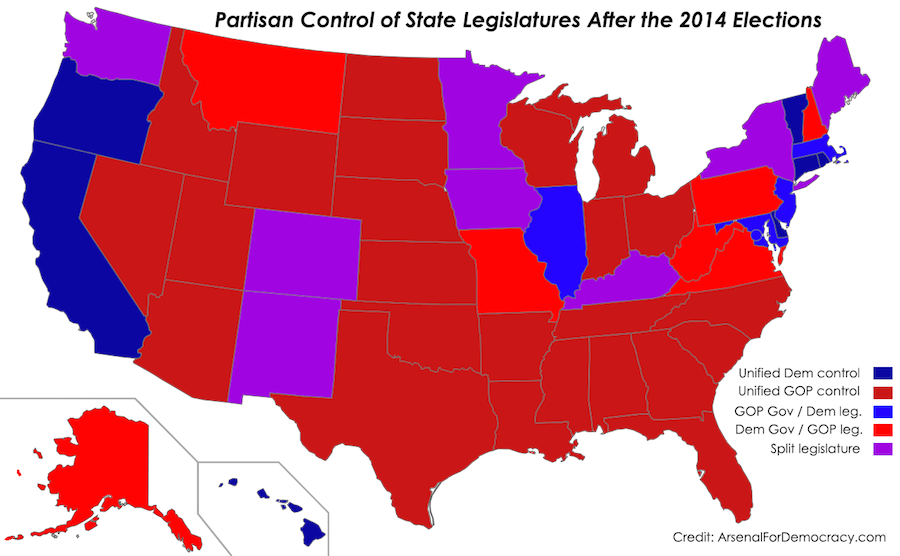 Facebook friend of mine Ken Gardner is fond of saying that a fair number of people who think they’re dissatisfied with Boehner and McConnell are really dissatisfied with the separation of powers. After all, any real change requires legislation, any legislation can be vetoed, and the Democrats in the Senate have proven that they won’t even let it come to that, with their abuse of the filibuster over the Iran deal.
Facebook friend of mine Ken Gardner is fond of saying that a fair number of people who think they’re dissatisfied with Boehner and McConnell are really dissatisfied with the separation of powers. After all, any real change requires legislation, any legislation can be vetoed, and the Democrats in the Senate have proven that they won’t even let it come to that, with their abuse of the filibuster over the Iran deal.
However, federalism plays as big a role as separation of powers. Our senators and representatives are from specific states and district, which can look very different from each other. In this respect, we are strikingly different from parliamentary democracies, even those such as Canada and the UK, where national slates really rule roost. In Will Mrs. Major Go to Hell?, William F. Buckley tells the story about a married couple, she from Massachusetts, he from Virginia. They discussed politics often, but never party registration. Turns out he was a Democrat, and she was a Republican, which came as a surprise to both of them. He being so conservative, she had assumed he was a Republican. She being so liberal, he had assumed she was a Democrat. Lots of fighting over that, apparently.
Those regional differences persist, even after the Great Reshuffling that began in earnest with the 1994 Congressional elections. The map that decorates this post, showing a broad swath of Republican legislative control across the country, masks a broad range of opinion and viewpoints. The Michigan and Wisconsin governments are run by Republicans, but I will promise you they are very different from Alabama and Mississippi.
That’s fine when you’re dealing with state issues. It comes into collision in Congress, where these regional Republicans have to sit in the same body.
When I was growing up, southern Congressional Democrats, who often voted conservatively, were referred to as “boll weevils,” while their northern liberal Republican counterparts were the “gypsy moths.” And it’s worth remembering that while Jesse Helms couldn’t have gotten elected in Minnesota, or Rudy Boschwitz in North Carolina, they both voted for the Reagan tax cuts.
What made it different was the “Reagan” part. Yes, the president has the veto power, but he also has the bully pulpit, and is the only office-holder elected by the entire country. He can set the agenda and give the party focus and direction in a way that it’s almost impossible for Congressional leaders to do.
There’s no question that Obama has broken the basic political agreement between citizens and the government:
Barack Obama has become the transformational president he aspired to be. Among the things he has transformed is the nature of the political compact between the rulers and the ruled in our republic.
Before Obama, citizens hoped that their elected leaders would be wise, independent, and disinterested leaders—but they never really counted on utopian vision. What they banked on was that the people they elected would, at the very least, be self-interested vote-seekers—so that if voters started punishing politicians for a specific course of action, the politicians would abandon it.
The passage of Obamacare broke this arrangement. And the impending passage of the Iran nuclear deal, in the face of voter discontent will cement this new relationship as the norm. In both cases, Democratic law makers went along in processes that were highly irregular (the nuclear option for passage of Obamacare; no treaty ratification with Iran); with initiatives they largely disliked on the merits; that voters demonstrably disliked in polling; and that had (or are likely to have) negative outcomes not just in the real world, but in the political world, too. This sort of power dynamic is new in American politics.
There’s also no question that Boehner and McConnell have been slow to recognize this shift, even as their opposite numbers on the Democrat side conspired in the reduction of Congress to an adjunct of the executive branch.
Whatever Boehner and McConnell may have “let” happen, real change will not come through Congressional action. It will have to wait for a Republican president, and even then, it will only happen with an energetic president committed to pushing legislation that devolves executive power back to Congress, reduces actual regulatory authority, and devolves federal power back to the states. It’s why primaries matter.
Obama is more Marius than Augustus, and we will not find our way back with a Sulla of our own. Sulla, of course, thought he was restoring the old order, but in the end, his lasting accomplishment was to establish a road map for future despots.



